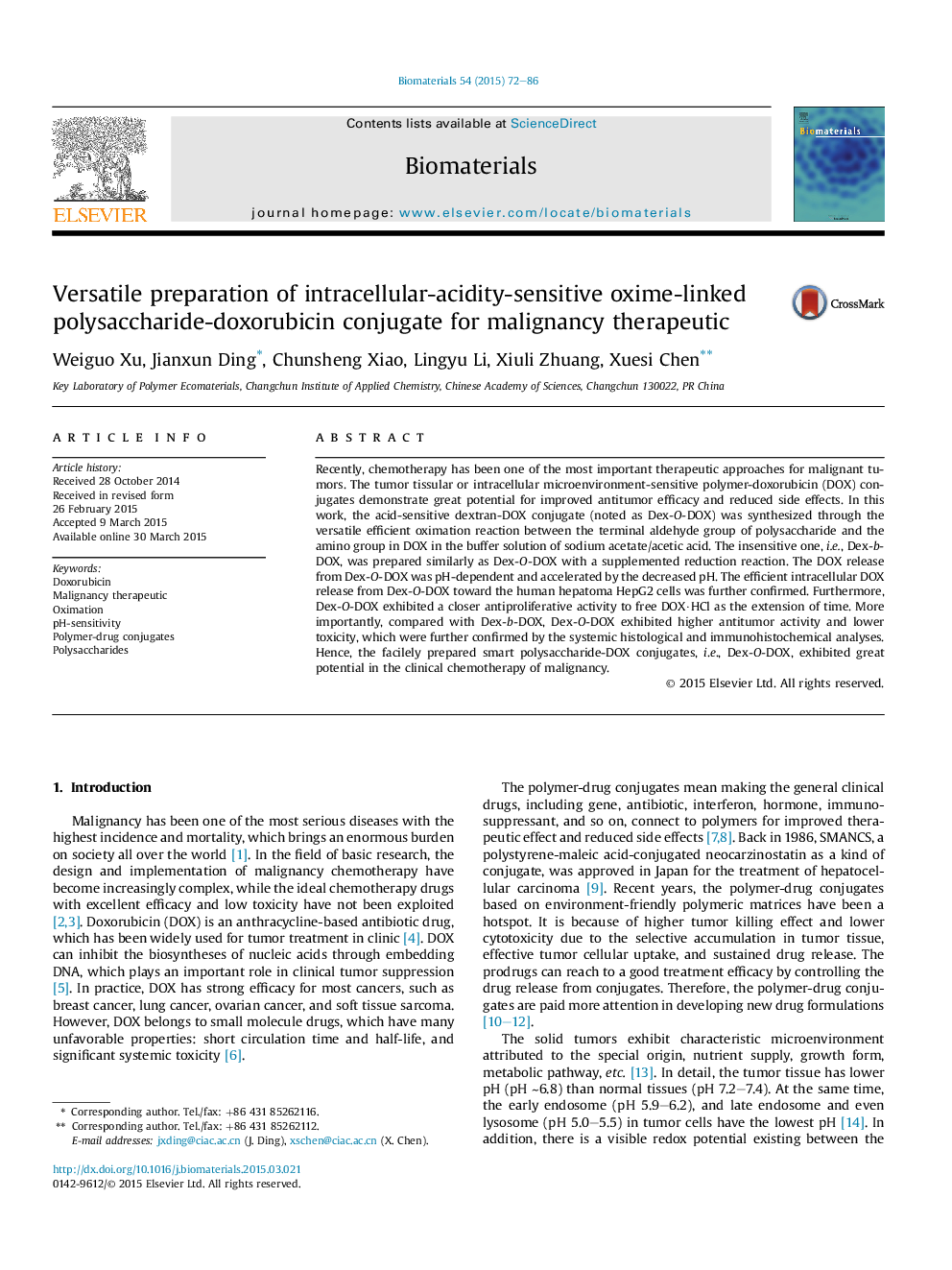| Article ID | Journal | Published Year | Pages | File Type |
|---|---|---|---|---|
| 6485779 | Biomaterials | 2015 | 15 Pages |
Abstract
Recently, chemotherapy has been one of the most important therapeutic approaches for malignant tumors. The tumor tissular or intracellular microenvironment-sensitive polymer-doxorubicin (DOX) conjugates demonstrate great potential for improved antitumor efficacy and reduced side effects. In this work, the acid-sensitive dextran-DOX conjugate (noted as Dex-O-DOX) was synthesized through the versatile efficient oximation reaction between the terminal aldehyde group of polysaccharide and the amino group in DOX in the buffer solution of sodium acetate/acetic acid. The insensitive one, i.e., Dex-b-DOX, was prepared similarly as Dex-O-DOX with a supplemented reduction reaction. The DOX release from Dex-O-DOX was pH-dependent and accelerated by the decreased pH. The efficient intracellular DOX release from Dex-O-DOX toward the human hepatoma HepG2 cells was further confirmed. Furthermore, Dex-O-DOX exhibited a closer antiproliferative activity to free DOX·HCl as the extension of time. More importantly, compared with Dex-b-DOX, Dex-O-DOX exhibited higher antitumor activity and lower toxicity, which were further confirmed by the systemic histological and immunohistochemical analyses. Hence, the facilely prepared smart polysaccharide-DOX conjugates, i.e., Dex-O-DOX, exhibited great potential in the clinical chemotherapy of malignancy.
Related Topics
Physical Sciences and Engineering
Chemical Engineering
Bioengineering
Authors
Weiguo Xu, Jianxun Ding, Chunsheng Xiao, Lingyu Li, Xiuli Zhuang, Xuesi Chen,
